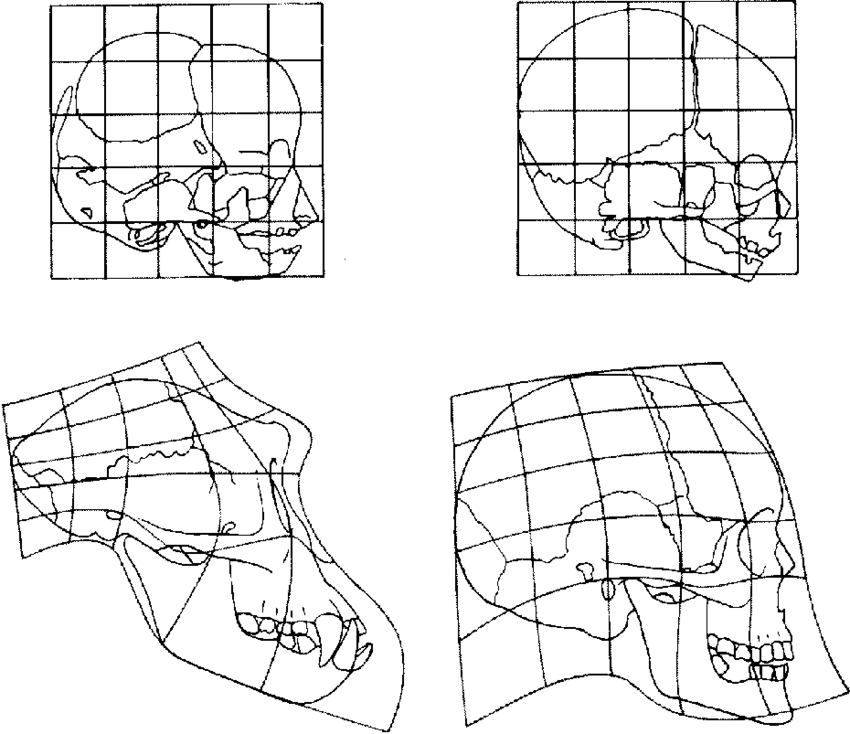Yes, stuff like that. The myostatin gene keeps us remarkably weak for a primate. Chimps, while much smaller than humans, are about twice as strong as most humans. There are examples of mutations of this gene in humans; such people are much stronger than normal. And there's a least one human who is the child of two olympic athletes, both with the mutation. Last I read, he was an incredibly strong baby. At that time, there seemed to be no adverse consequences.
I tend to think the "weaker muscles/larger cranium" hypothesis is wrong; as D'Arcy Thompson noted over a century ago, allometric growth leading to relatively smaller face and jaws, and relatively larger crania seems to adequately explain our differences with other apes WRT the skull. Possibly a single gene could mediate such a change:
Your "unused parts" notion would apply to things like wisdom teeth (now apparently becoming less common in humans) and the vestigial appendix. The appendix is vestigial because it no longer serves as a digestive organ, but does have a function as a refuge for symbiotic bacteria, and manufacture of some leukocytes.



